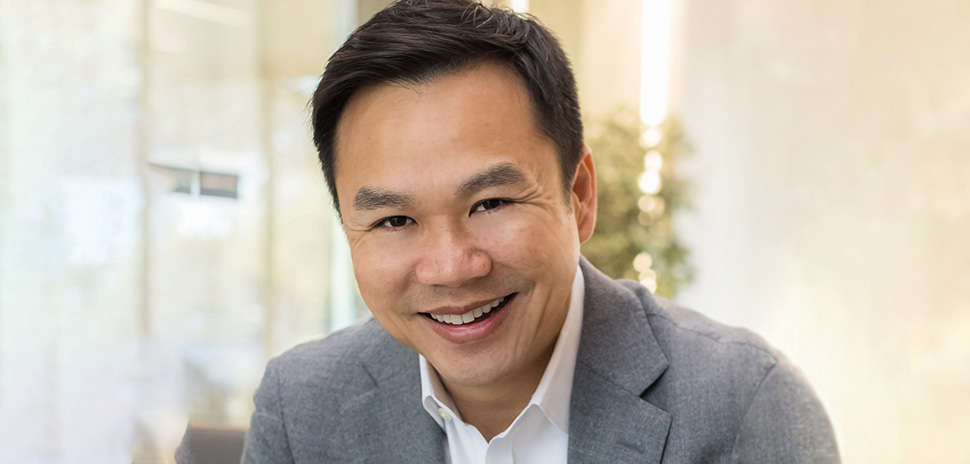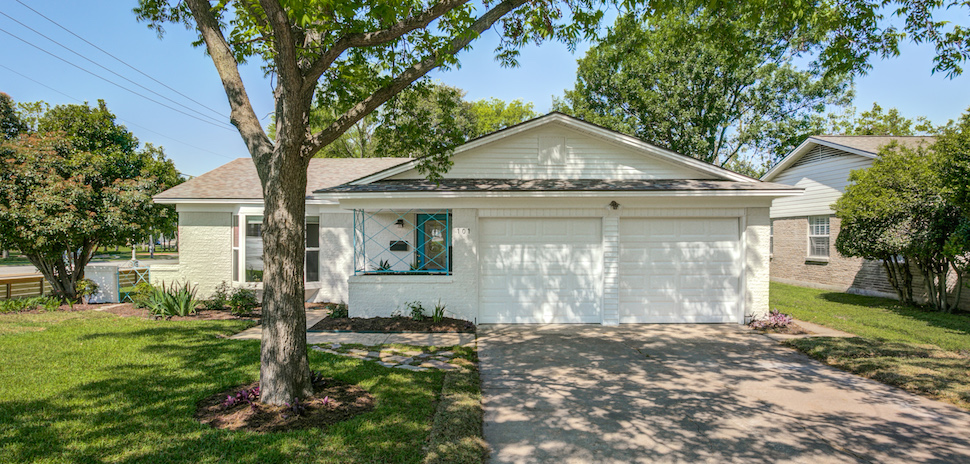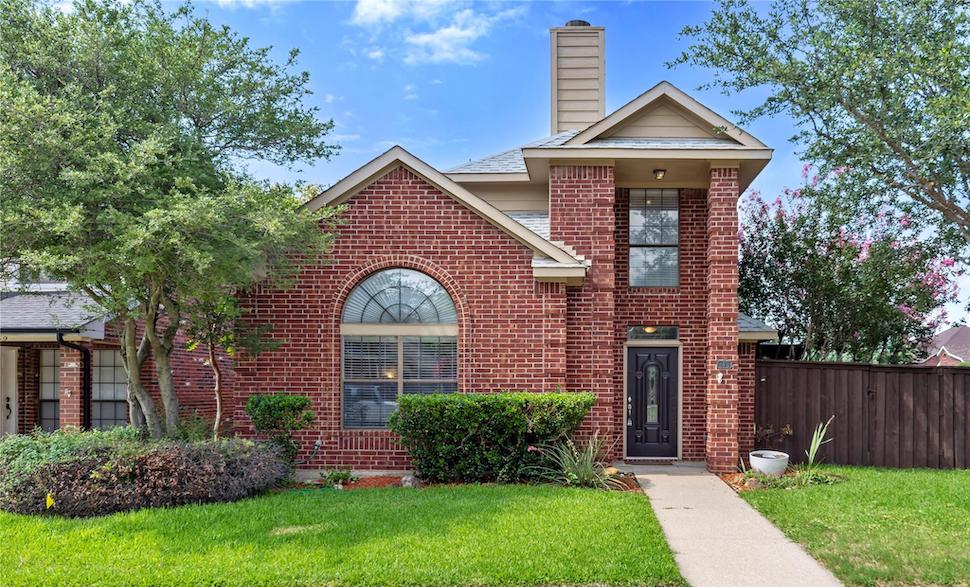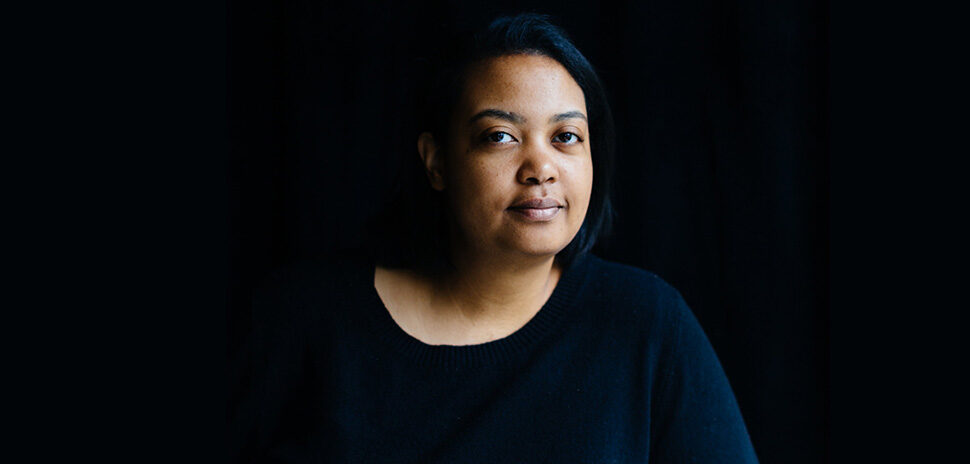Ty Lee is a big believer in the single-family home rental market—and he has two investment funds to prove it. In March, he launched Common Ground Capital, a fund for accredited investors that raised $7 million. Now he’s launching a second fund aimed at the general public, giving non-accredited investors the chance to invest as little as $100 to become a player in the sector.
The Dallas architect and real estate developer has launched Common Dwelling—a new, Regulation A fundraising online platform offering investment opportunities to single-family rental homes, beginning in Texas. Its initial target raise is $20 million.
Common Dwelling is currently targeting single-family rentals throughout Texas to acquire, renovate, manage, and lease. Its design services are kept in-house, supported by established construction partnerships, leading to what it calls “a higher speed to market and fewer expenses.”

Ty Lee managing director of Common Dwelling. [Photo: Common Dwelling]
Lee focused on the sector at the start of the pandemic
Back in March 2020, as the pandemic locked down much of America, Lee went looking for new investment opportunities. He focused on real estate “because real estate is just in my blood,” he told Dallas Innovates. “It’s my history between being an architect and working with developers. It’s something that I love and understand.”
Other asset classes didn’t appeal to him. Retail? “Panicky, volatile.” Office? “I think there’s a lot of question marks there.” He loved industrial and multifamily, “but you really have to be the developer, not the acquirer, because they’re trading at such a low cap rate.”
The biggest thing that drew him to single-family rentals was demographics.
43% of Gen Z prefers to rent homes instead of apartments
“I looked at the demographics of our country, in particular the Millennials—how big they are, what their lives are like, and what they are going to be. Then when you layer on Gen Z—which is the third-largest group—a lot of them are in college or about to wrap up college.”
The stat that sealed it for Lee was from Arbor Realty Trust: 43% of Gen-Zers would prefer to rent a single-family house after they graduate from college instead of an apartment.
“That blew my mind,” Lee said, “because when I was graduating college, I wanted to be downtown in the core in an apartment and live a walkable urban life. But something has shifted in the mindset of these demographics to where they’re wanting houses and yards. They’re wanting to have dogs and space. So when you combine all the data points together, I just fell in love with single family. I think there are a lot of antiquated things that can be done better.”
“That’s when I decided that this was going to be my focus,” he said.

[Photo: Common Dwelling]
Leveraging his background at CBRE and other real estate investment firms
Lee has held senior positions at CBRE, Triten Real Estate Partners, Quadrant Investment Properties, and Perkins + Will. He began his career by practicing architecture at leading global architecture firms, before transitioning to the development side in 2014. At Dallas-based CBRE—the world’s largest commercial real estate services and investment firm—he managed over $100 million of asset value.
In addition to Lee, Common Dwelling’s executive team includes enterprise tech veteran and investment banker Christian Mack, who was managing director and founder at Lotus Funds. The new Common Dwelling fund is administered by Cobalt Fund Services.
Launching Common Dwelling took longer due to SEC requirements
While Common Dwelling has been operating in stealth for a while, it took until last week to formally launch it—several months after Lee’s Reg D accredited investor fund, Common Ground Capital, had already launched. That’s because Common Dwelling allows for general solicitation as a Reg A fund, leading to more extensive SEC requirements.
Lee raised the $7 million for Common Ground more quickly than he expected. “We thought it would take more like 12 months, he said. “I was pleasantly surprised. They believe in the space… But there’s a lot of capital on the sidelines right now looking for good deals. That’s the bigger challenge in the capital markets.”

[Photo: Common Dwelling]
Giving everyday investors opportunities previously closed to them
Until now, non-accredited investors have had limited real estate investment options—mainly only real estate investment trusts (REITs), retirement plans, or equities.
Common Dwelling’s website says its mission is “to provide better investment opportunities to the general public. We’re frustrated that the best opportunities are only available for high-net worth or accredited investors.”
Lee notes that while institutional investors get access to strong returns in real estate, people who may only have as little as $100 to $1,000 to invest “seem left out.”
“I wanted to create a platform where people who would like this idea, can invest with however much money they have available to them,” Lee said.
Pointing to stats that show the strength of single-family homes
The website points to statistics showing the value of single-family home investment, saying that single-family rents haven’t declined during the pandemic, while “office, retail, industrial and multifamily did.”
“Over the past five years single-family home prices have increased by 42%,” the website notes, adding that “single-family home values [are] projected to grow 13%.”
The Common Dwelling website projects strong returns: “For every $100 you invest with us, we project you will receive $180 back in approximately 3 years.” It adds, “Though past performance is no indicator of future performance, with our past properties, we have achieved over 20% IRR and 1.8x equity multiples. We’re forecasting the homes will stabilize within 12-24 months of the capital raise and begin cash flow to investors.”
Lee’s team makes fast turnarounds to buy homes, renovate, and rent them
Lee believes his architecture background gives Common Dwelling an edge, allowing his team to evaluate homes and assemble the right resources to do things at an expert level.
But another reason he’s confident about his process is the speed he delivers.
“We have a system set up to where we have a pro forma and we can underwrite a house in about 15 minutes,” he said. “We’re finding they’re all things that need a little bit of love or are off market. We can find about one a day—even in this market—at some pretty controlled cost prices. Once we do that, we typically are able to come up with a design within a day or two.”
While other investors scramble to find crews to renovate acquired homes, Lee says his “strategic construction partnerships” make a big difference.
“We have dedicated construction crews that can turn them in about seven to 14 days,” Lee said. “Then with the leasing, there’s so much demand that we’re leasing in about another two weeks or less. From the time we close on a property to the time that they’re leased, it’s usually somewhere between 30 and 45 days. And we’re seeing great success because of all those things that we’ve accumulated.”
Valuing good schools when choosing neighborhoods
“We’re unyielding about school ranking,” Lee said. “Every home we purchase has to have at least a five out of 10 ranking based on [the neighborhood’s] grade school.”
“We also believe that those are the tenants that we want in our homes,” he said. “We want tenants that value education as well. They tend to take care of the homes and be a great addition to the community. That’s another characteristic of our investment criteria that is very important to us.”
Aiming for a three- to five-year window before selling the portfolio
Common Dwelling aims to sell the homes it acquires after a rental window of three to five years.
“Our typical horizon of between three and five years is our whole period,” Lee said. “That’s for a couple of reasons. One, we get the path through long-term capital gains, so our investors are not taxed as ordinary income. Two, the appreciation and return of the equity to our investors tends to be higher if you hold for a few years, because it captures the home appreciation and the rental appreciation. And lastly, most investors need their capital back. Most investors can’t really stay in investment for a decade.”
“So unless the market dictates otherwise, we’ll likely sell the portfolio to an institution because they can buy them all at once. And we’ll probably do that somewhere between year three and year five.”
“With both Common Ground Capital and Common Dwelling, we’re able to combine institutional underwriting and valuation experience with a solid architectural and design background to provide well-designed and relevant single-family rentals,” Lee said in a statement. “We’re currently seeing great success with rent growth, robust current and future demand in the space, and want to provide that opportunity for as many people as possible.”
![]()
Get on the list.
Dallas Innovates, every day.
Sign up to keep your eye on what’s new and next in Dallas-Fort Worth, every day.


































































